More exchanges and cooperation will improve trust
Updated: 2015-11-06 08:02
By Chen Weihua(China Daily)
|
||||||||
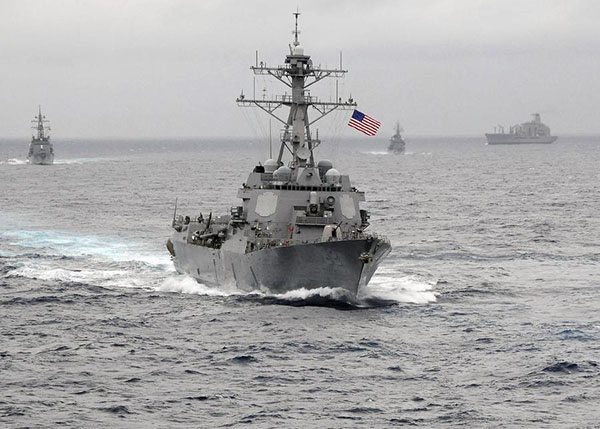 |
|
The US Navy guided-missile destroyer USS Lassen sails in the Pacific Ocean in a November 2009 photo provided by the US Navy. [Photo/Agencies] |
What happened on Tuesday may shed light on the state of China-US military-to-military ties.
That morning, the Naval Station May port in Jacksonville, Florida, welcomed three vessels of the PLA Navy, which are on an around-the-world tour after completing their anti-piracy mission in the Gulf of Aden. These were the first PLA Navy vessels to pay a call to a port on the East Coast of the United States.
On the same day, the Peace Ark, the PLA Navy hospital ship, paid a port call to San Diego, California.
Both visits include plenty of interactions between the personnel of the two navies, as well as with the local communities.
In Jacksonville, I saw a warm welcoming ceremony hosted by the US Navy Region Southeast. The words of Rear Admiral Mary Jackson of US Navy and Wang Jianxun, commanding officer of the visiting Chinese fleet, were encouraging, emphasizing respect, understanding and cooperation. Basketball, soccer and tug-of-war games and joint exercises are scheduled activities to help foster these.
Also on Tuesday, US Pacific Command Commander Harry Harris met Fan Changlong, vice-chairman of the Central Military Commission, during his visit to China. While differences over thorny issues such as South China Sea remain, both stressed the importance of more exchanges and cooperation. On the same day, China's Minister of National Defense Chang Wanquan and his US counterpart Ash Carter convened in Kuala Lumpur, Malaysia.
The military-to-military relationship has matured quite a bit. Tensions resulting from the USS Lassen entering waters around Chinese isles without permission have triggered strong protest from China, but not a suspension of military-to-military exchanges and cooperation, as it would have a few years ago.
On the contrary, such exchanges and cooperation should only be strengthened given the still overall lack of contact between the two militaries. For many US Navy officers and crew in Jacksonville, it was their first time interacting with their PLA Navy counterparts face-to-face.
So while Carter continued to voice his concern over China's activities in the South China Sea and cyberspace on Tuesday, he also accepted an invitation extended to him to visit China next spring.
On the other side, the Chinese have long felt upset with US arms sales to Taiwan, which is part of China, and also the US Navy's frequent close-in reconnaissance missions off China's coast as well as the ridiculous US law passed by Congress to restrict, rather than encourage, military-to-military exchanges with China.
More exchanges and cooperation could help reduce the serious misunderstanding that exists between the two countries today. The port call in Jacksonville comes as a great opportunity for Americans to know more about the PLA Navy's anti-piracy operations in the Gulf of Aden. Such operations by the PLA Navy benefit the world as they defend freedom of navigation.
Misunderstanding and misinterpretation are rife these days. Some news outlets have misread the words by PLA Navy Commander Wu Shengli in his recent video conference with his US counterpart John Richardson as a threat. But what Wu said ca qiang zou huo (to shoot accidentally while polishing a gun) is really meant as advice or a warning at most, not a threat.
The same is true for the allegation by some US politicians that portray China as a threat to freedom of navigation in the South China Sea. Few seem to be aware that freedom of navigation there means at least as much to China as any other nation, so it makes no sense that China would want to jeopardize it.
The differences between the two nations and two militaries are likely to remain for a long while, but ca qiang zou huo is less likely if the two militaries continue to beef up their exchanges and cooperation.
The author is deputy editor of China Daily USA. chenweihua@chinadailyusa.com
- Locals have tradition of drying foods during harvest season
- Beijing-Tianjin-Hebei govts to cooperate on emissions control
- Web promotion of prostitution to be targeted
- Two more spells of smog predicted to sweep North China
- Glass bridge in grand canyon of Zhangjiajie under construction
- Road rage cases pose huge safety challenge

 Can Chinese ‘white lightning’ make it in US?
Can Chinese ‘white lightning’ make it in US?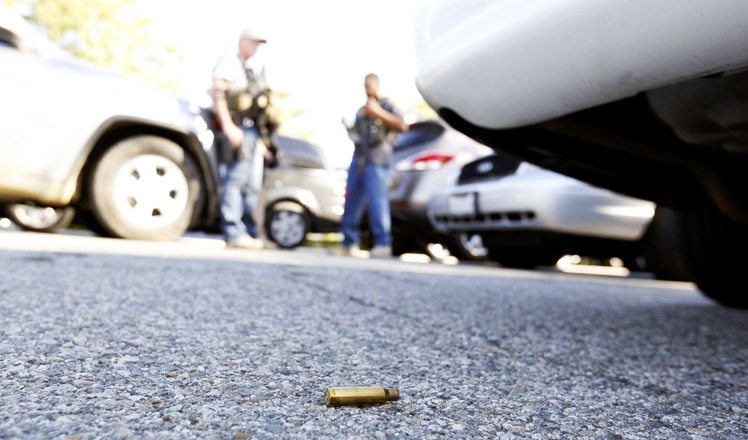
 Gunmen go on a killing spree in Southern California
Gunmen go on a killing spree in Southern California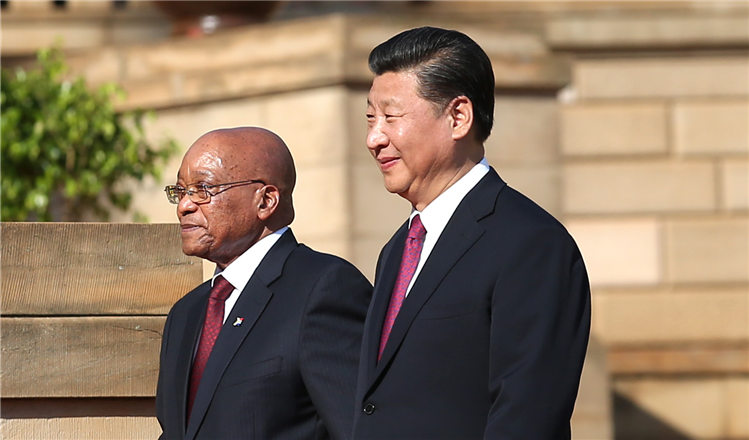
 Chinese, South African presidents hold talks to cement partnership
Chinese, South African presidents hold talks to cement partnership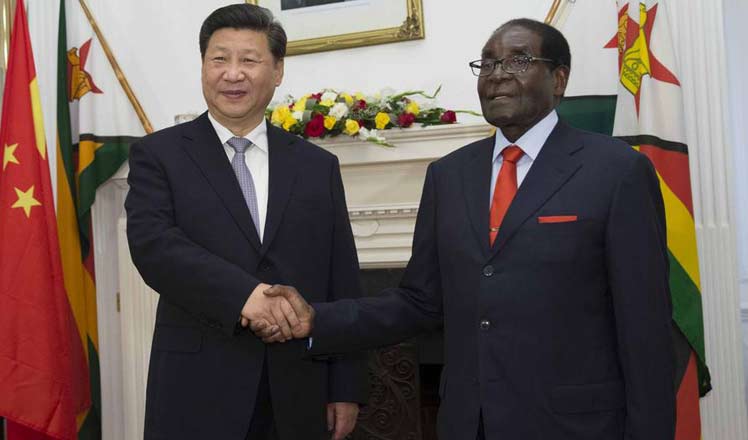
 China, Zimbabwe agree to boost cooperation
China, Zimbabwe agree to boost cooperation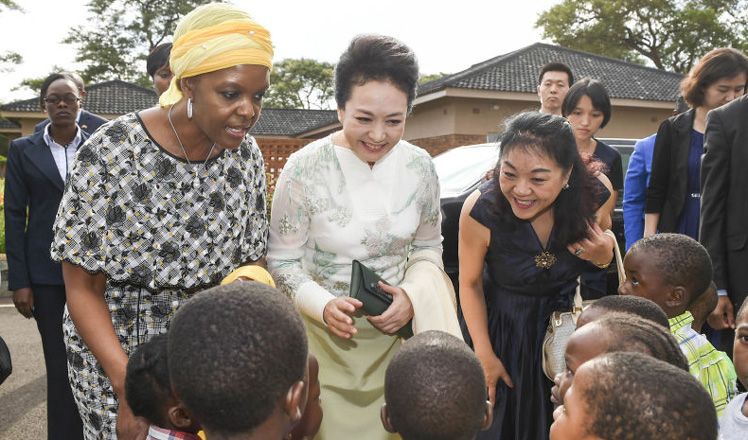
 First lady visits Africa's 'new window' on China
First lady visits Africa's 'new window' on China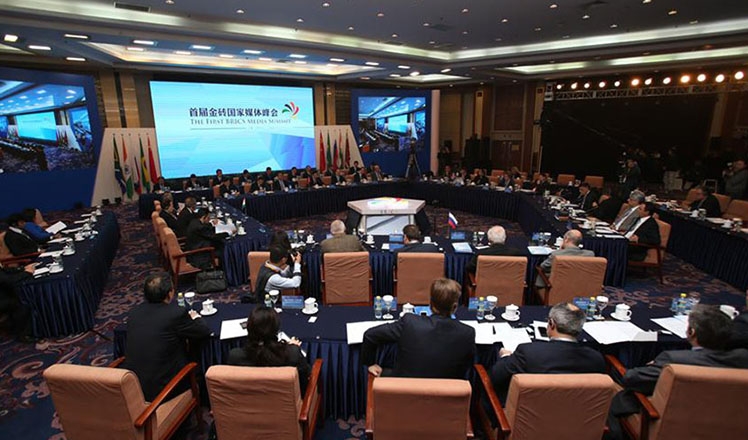
 BRICS media leaders to secure louder global voice
BRICS media leaders to secure louder global voice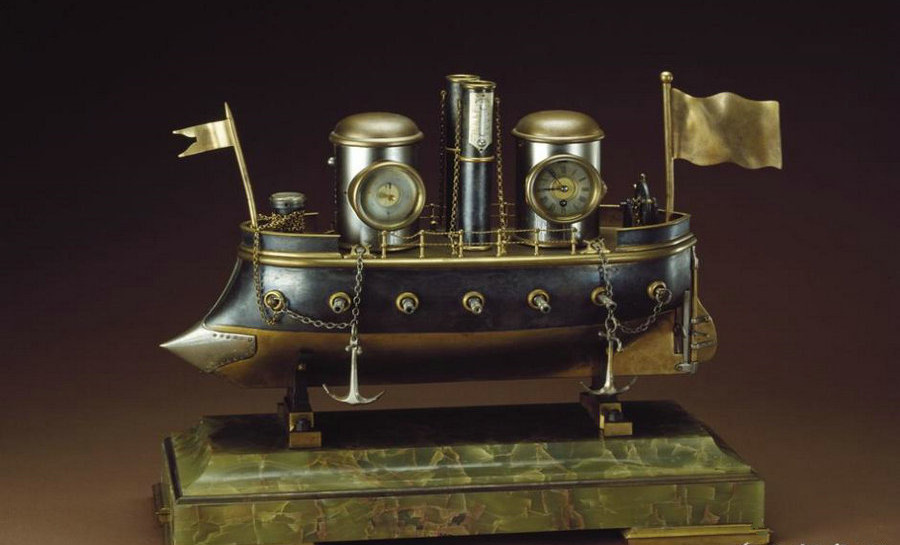
 Western science in the eyes of Chinese emperors
Western science in the eyes of Chinese emperors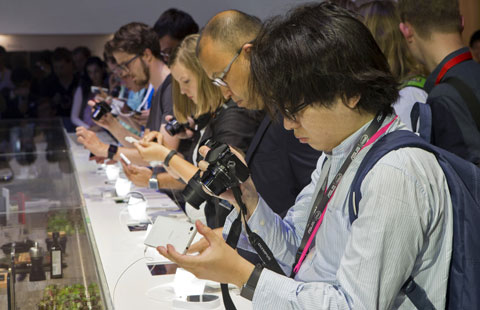
 Top 10 smartphone vendors with highest shipments in Q3 2015
Top 10 smartphone vendors with highest shipments in Q3 2015
Most Viewed
Editor's Picks

|

|

|

|

|

|
Today's Top News
Shooting rampage at US social services agency leaves 14 dead
Chinese bargain hunters are changing the retail game
Chinese president arrives in Turkey for G20 summit
Islamic State claims responsibility for Paris attacks
Obama, Netanyahu at White House seek to mend US-Israel ties
China, not Canada, is top US trade partner
Tu first Chinese to win Nobel Prize in Medicine
Huntsman says Sino-US relationship needs common goals
US Weekly

|

|







